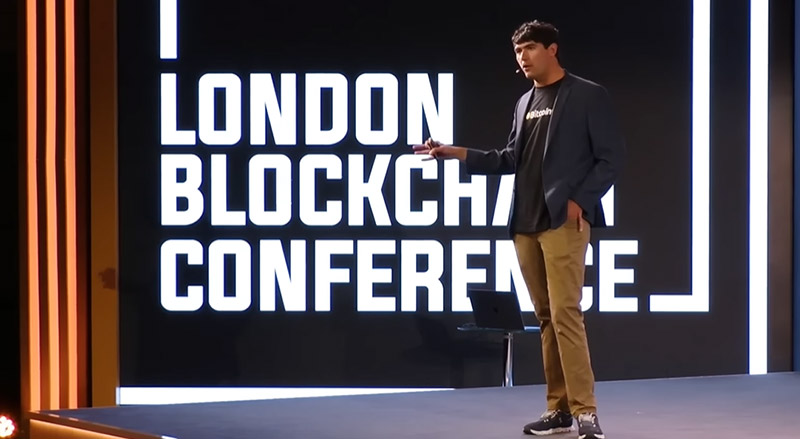The BSV Association has been granted stewardship of the Bitcoin protocol and is currently working on the implementation of technical means and operational processes to actively steward the system.
This was expanded upon at the recent London Blockchain Conference in a panel hosted by Connor Murray (Head of Protocol Stability at the BSV Association) in which he discussed the importance of stewardship, the mission of the Association and what to expect going forward. Murray also delved into the latest protocol and SVNode updates, including miners offering a portion of the transactions for free.
Murray began the presentation by outlining that the Association’s mission is to protect the protocol and empower builders. This includes a data protocol that is scalable, open to anyone globally, usable for micropayments, and traceable within existing legal structures, he said.
The BSV blockchain’s four pillars
This is further expanded by the Association’s focus on four key pillars:
- Stability – The original Bitcoin protocol has everything needed to sustain a vibrant, scalable network.
- Scalability – Bigger blocks are needed to support the increased diversity of transactions which businesses want to perform.
- Security – Deliver unprecedented commitment to quality assurance and professionalised engineering.
- Safe Instant Transactions – The BSV roadmap treats safe, instant transactions as a key priority.
‘Over the past six months, we at the BSV Association have been planning to publicise what the Bitcoin protocol is. Ultimately, what we want to do is enable anyone to build a competing node software,’ Murray said.
SVNode updates
Murray said that the three most critical upcoming SVNode updates are:
- The alert key mechanism,
- Support for free transactions,
- Full protocol restoration.
The alert key mechanism
Satoshi first introduced the alert key mechanism in 2010 as a response to the value overflow incident. This bug inadvertently created an additional 184.5 billion bitcoins distributed among three different addresses.
The alert key mechanism is set to be reinstated to notify nodes in the event of bugs or the occurrence of high hash rates directed at the BSV blockchain for malicious purposes. It will enable the BSV Association to transmit signed messages across the peer-to-peer network, thus averting potential chain splits and facilitating a straightforward digital asset recovery (DAR) process.
Murray explained that this will reduce dependency on third-party components for network communication. Instead, this can be achieved directly through the peer-to-peer network, which is already in use for communication needs.
Support for free transactions
Murray explained that in the early days of Bitcoin, free transactions were not only allowed but also encouraged. While transaction fees have become pivotal for incentivizing miners and upholding the security of the Bitcoin network, there remains a relevant role for free transactions even today.
Within the current landscape of the BSV blockchain, available block space is abundant. The difference in miner processing between a 10 MB block and a 200 MB block is almost inconsequential. ‘We aim to grant miners the option to allocate a portion of transactions for free. This approach is anticipated to inspire businesses, users, and developers to explore Bitcoin without incurring any costs,’ Murray said.
To facilitate these free transactions, the BSV Association will establish a distinct Mempool, albeit with a lower priority. Consequently, transactions within this Mempool will experience longer processing and validation times. Users seeking faster transaction processing can choose to opt out of this Mempool and pay the associated transaction fees.
Full protocol restoration
While the BSV blockchain faithfully preserves the original Bitcoin protocol as envisioned by Satoshi 15 years ago, there are still some essential components awaiting restoration.
This includes certain opcodes like OP_VER, which is used to push version numbers onto the stack. OP_VER was among the elements left out during the Genesis update but is scheduled for integration shortly. One notable advantage of reintroducing OP_VER is that it will empower developers to construct overlay networks.
Additionally, the BSV Association is planning to eliminate the requirement for a clean stack. Currently, the protocol demands an empty stack for a script to be considered valid, a departure from the original Bitcoin protocol that allowed the flow from one script to another.
Another significant upcoming update involves permitting opcodes in unlocking scripts. Presently, the protocol pushes all elements in the unlocking script as push data. This can present challenges for users attempting to unlock coins locked to a public key. The forthcoming update will not only address this issue but also open the door to more innovative applications, such as performing computations within the unlocking script.
